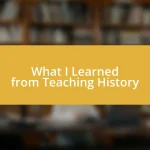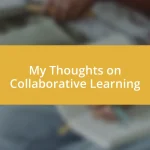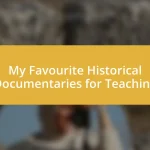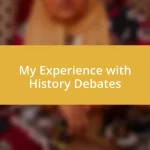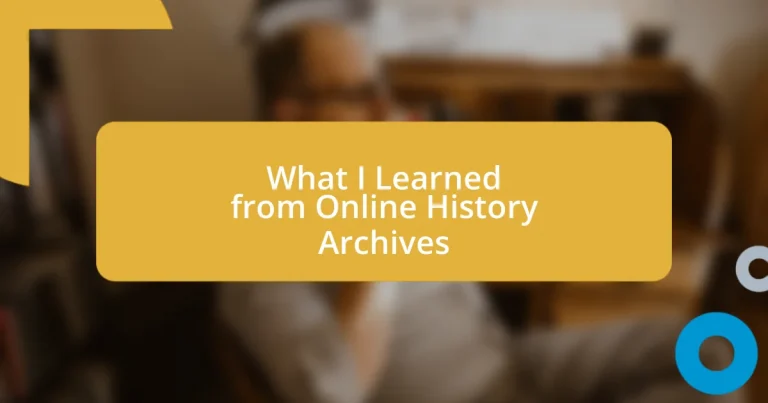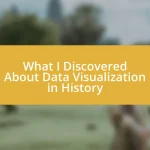Key takeaways:
- Online history archives provide access to diverse perspectives and personal narratives, enhancing emotional connections to historical events.
- Effective research techniques include strategic keyword searches, tracking citations, and engaging with archivists for deeper insights.
- Understanding the credibility of sources is crucial, focusing on the author’s qualifications, publication dates, and the balance of primary vs. secondary materials.
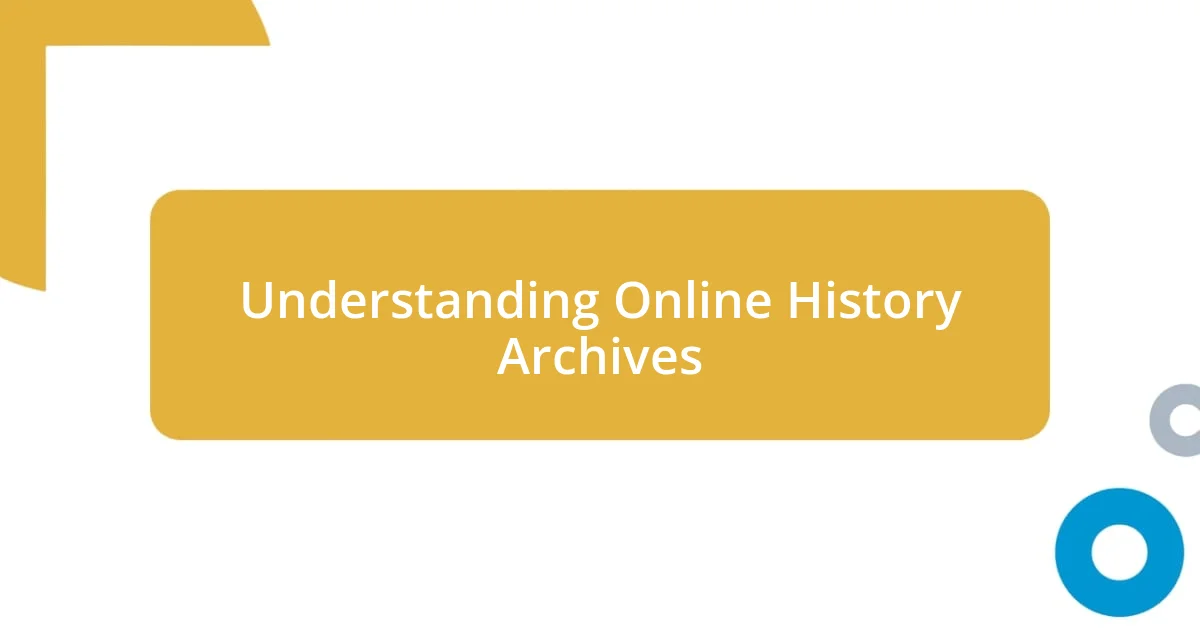
Understanding Online History Archives
Online history archives serve as digital gateways to the past, offering a vast trove of documents, photographs, and personal narratives. I remember the first time I stumbled upon an online archive dedicated to World War II. The sheer magnitude of stories and firsthand accounts brought that era to life in a way textbooks simply couldn’t. Have you ever found a narrative that resonated with you on a deeply personal level?
Diving into these archives, I often feel a mix of excitement and nostalgia. It’s like peering into a time capsule where countless lives intersect. The emotions captured in letters or journal entries can be profoundly moving. Each piece I uncover adds layers to my understanding of history—don’t you think it’s amazing how a single document can connect us to someone who lived decades ago?
I’ve realized that understanding online history archives goes beyond just accessing information; it’s about engaging with the voices of the past. For instance, I came across a diary from a young woman in the early 1900s, detailing her aspirations and struggles. It struck me how much we can learn from her experiences. Isn’t it fascinating that these digital collections allow us to empathize with those who walked the same earth long before we did?
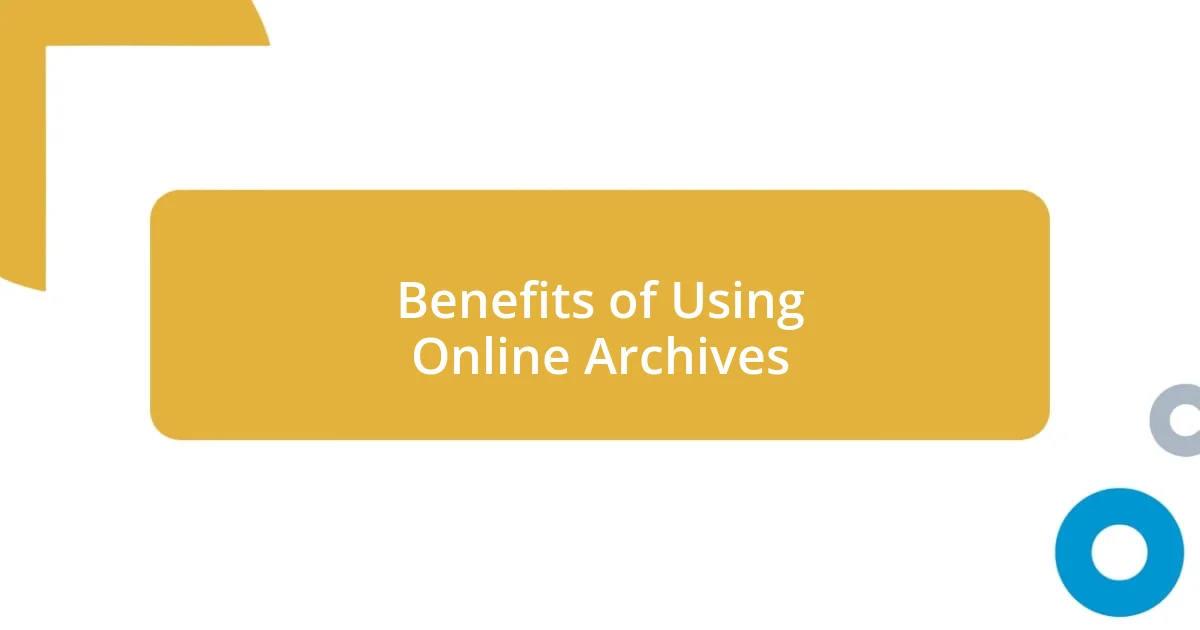
Benefits of Using Online Archives
Engaging with online history archives offers a unique opportunity to explore diverse perspectives that might otherwise remain overlooked. For me, discovering a collection of letters from immigrants arriving in the United States in the late 19th century was eye-opening. The emotions captured within those pages—hope, fear, and determination—suddenly made their struggles and triumphs feel immediate and real, bridging the gap between generations. It’s like finding a long-lost relative whose story teaches you so much about resilience.
The benefits of utilizing these digital resources are numerous:
- Accessibility: You can explore documents from anywhere, at any time, breaking the barriers of physical location.
- Diversity of Sources: Archives often include a range of materials, from official documents to personal diaries, providing a holistic view of historical narratives.
- Preservation of History: Digital archives help safeguard fragile documents, ensuring that future generations can access them.
Every time I revisit an archive, I’m reminded that these collections not only preserve history—they breathe life into it.
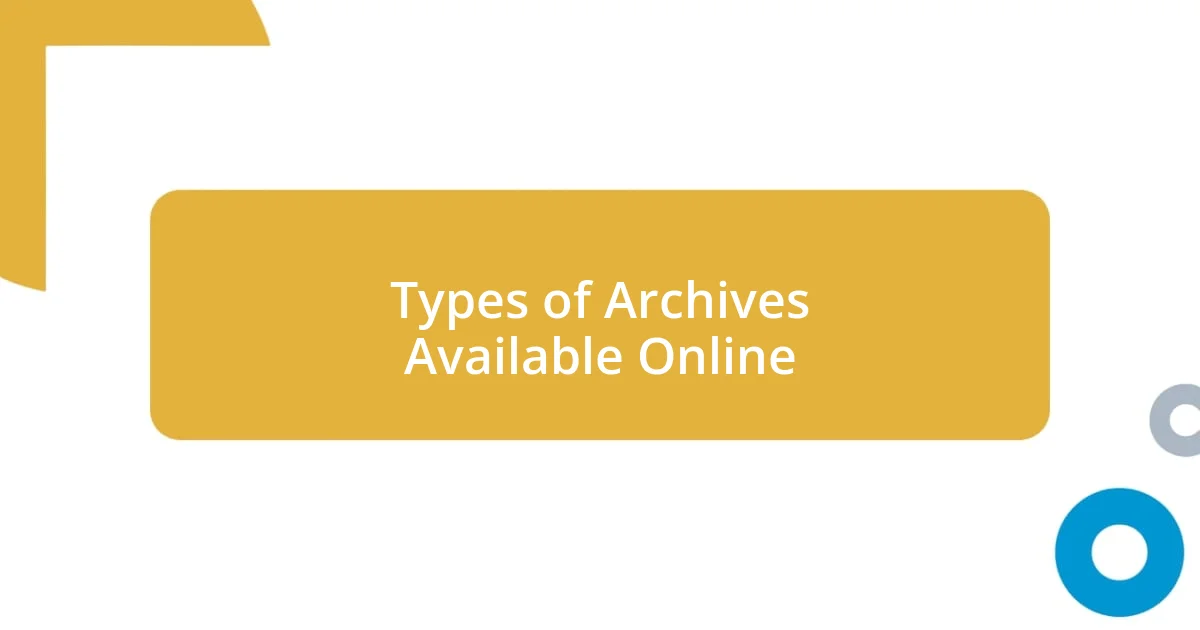
Types of Archives Available Online
Online history archives come in various forms, each offering unique insights into the past. First, there are institutional archives, often hosted by universities or government agencies. I recall accessing an institutional archive from a renowned library, which provided a wealth of governmental documents that illuminated key historical decisions. These documents not only offer context but also allow for a deeper understanding of the political landscape during pivotal moments in history.
On the other hand, personal archives are another vibrant type, filled with personal letters, diaries, and photographs from individuals. My experience browsing through personal accounts of everyday citizens during the Great Depression was particularly impactful. I found myself connecting with their fears and hopes, which reminded me of the modern struggles many face today. The raw emotions captured in their writings made history feel tangible and relevant, creating a vivid connection across time.
Lastly, there are specialized archives dedicated to specific topics or events, such as wars, social movements, or cultural shifts. I once discovered a specialized archive focused solely on the Civil Rights Movement, complete with speeches, photos, and personal testimonies. Engaging with these materials felt like stepping into a time where every detail mattered, and I felt an overwhelming sense of responsibility to honor those who fought for justice. These various types of online archives enrich our understanding of history by bringing diverse narratives to our fingertips.
| Type of Archive | Description |
|---|---|
| Institutional Archives | Hosted by universities or government entities; provides official documents and a broader political context. |
| Personal Archives | Comprise individual letters, diaries, and photographs; offers emotional insights into lived experiences. |
| Specialized Archives | Focused on specific events or themes, providing targeted insights and a rich array of materials. |
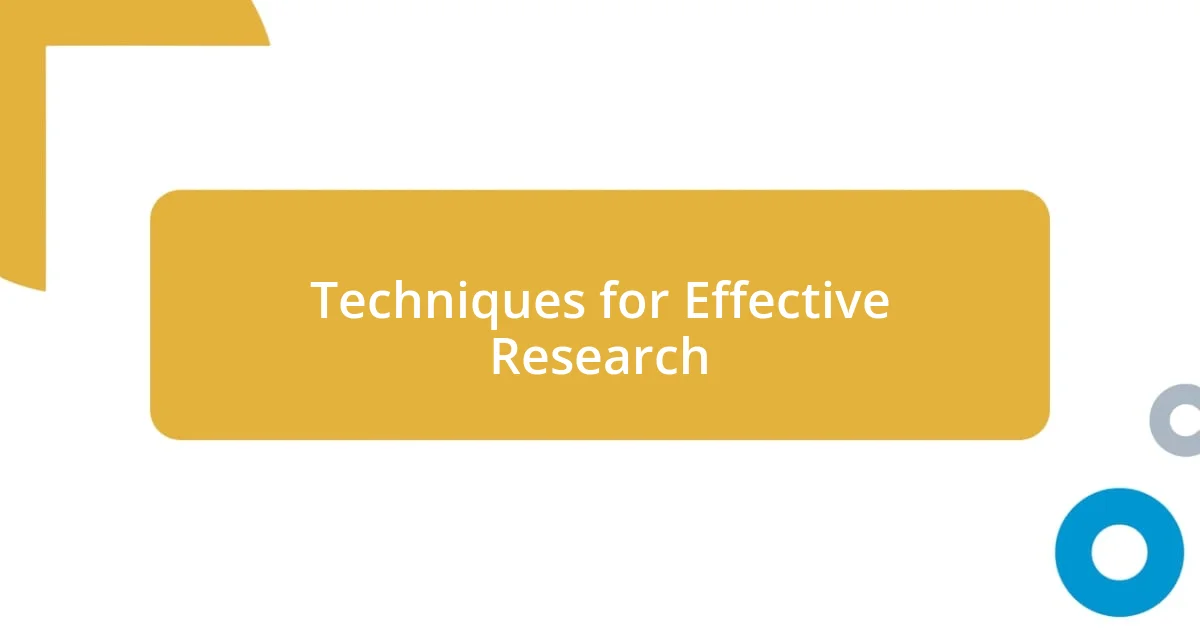
Techniques for Effective Research
When diving into online history archives, an effective technique is to use keyword searches strategically. I remember the first time I searched for “women’s suffrage” in a digital archive; the results were overwhelming, yet fascinating. Each keyword serves as a key to unlock a treasure trove of sources. How often do we consider the importance of phrasing our searches? By refining my search terms, I found not only prominent documents but also lesser-known voices that enriched my understanding of the movement.
Another approach I’ve found particularly valuable is tracking citations and references within the materials. While exploring an archive focused on the Revolutionary War, I stumbled upon a footnote that led me to a personal diary of an everyday soldier. This side note changed my perspective entirely—seeing the war through the experiences of a soldier transformed the broader narrative for me. Have you ever followed a citation and discovered something unexpected? These connections can lead to hidden gems that reveal the layers within historical events.
Lastly, never underestimate the power of reaching out to archivists or fellow researchers. On one occasion, I wasn’t sure how to access a specific collection about immigrant experiences. A quick email to an archivist opened a door to resources I hadn’t even thought to ask about. This collaborative mindset enriches the research process, reminding us that we’re part of a larger community passionate about history. Have you ever tapped into the knowledge of someone who shares your interests? It’s truly an invaluable resource.
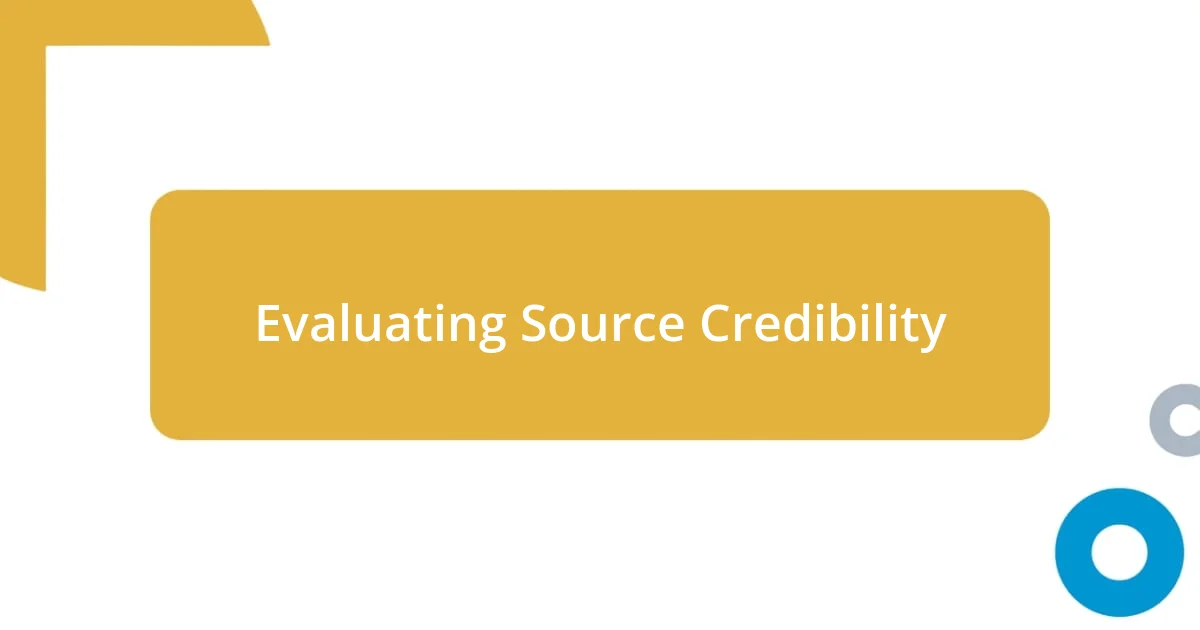
Evaluating Source Credibility
When evaluating source credibility in online history archives, I always remind myself to scrutinize the author’s qualifications and affiliations. For instance, I once stumbled upon a blog that presented historical analysis on a significant event, but upon investigating, I found the author was a student without any formal training in history. It made me question the validity of the interpretations presented—how can we trust a source if the author lacks expertise?
I also pay close attention to the publication date of the materials. During a recent exploration of archival photos from the 1960s civil rights protests, I found a piece that had been recently posted but cited outdated information. It’s fascinating how some narratives can evolve over time, but outdated sources could perpetuate misconceptions. Have you ever considered how context changes the value of historical sources? Understanding the timeline helps to ensure we’re engaging with the most accurate portrayal of events.
Moreover, exploring the citations and sources referenced in an archive can reveal a lot about its credibility. For example, I came across an online exhibition that highlighted primary sources from World War II but cited mostly secondary analyses. It struck me as odd; without firsthand accounts or primary documents, the narrative risked becoming skewed. This experience reinforced my belief that not all sources are created equal. What do you think matters more in historical research: the original documents or the analysis surrounding them? Balancing both aspects is crucial for a well-rounded understanding.
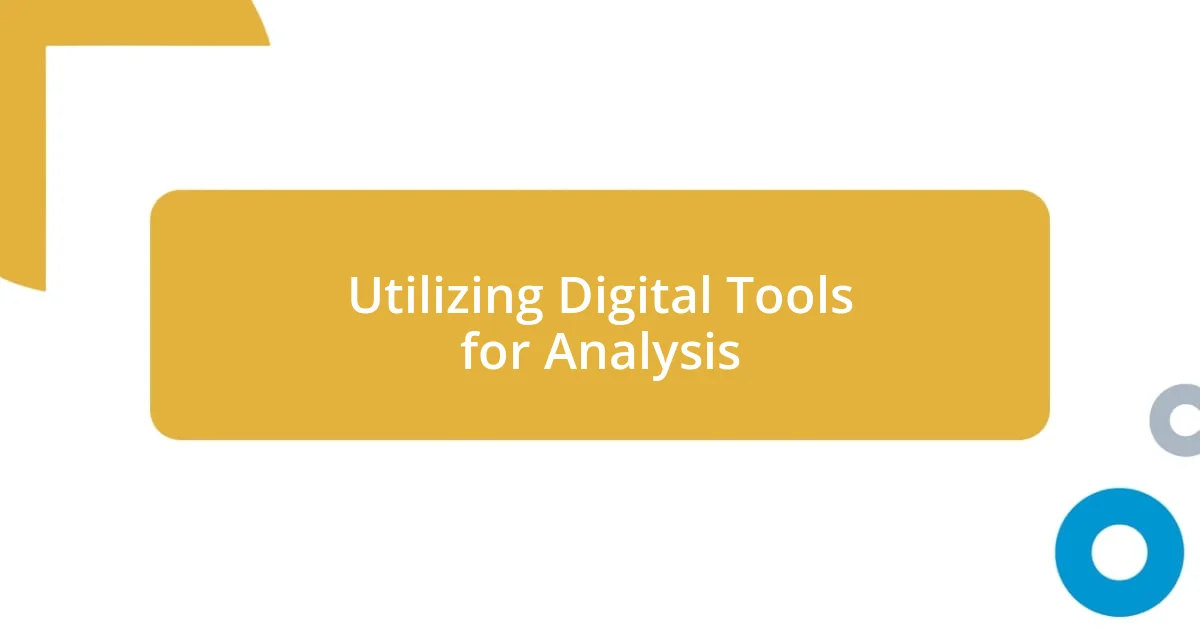
Utilizing Digital Tools for Analysis
Utilizing digital tools for analysis has transformed the way I engage with historical materials. I vividly recall the first time I used digital mapping tools to analyze migration patterns during the 19th century. It was as if I could see history come alive as I plotted different journeys on a map. Have you ever used a visual tool to enhance your understanding of a topic? Those unexpected patterns often tell a more profound story than the text alone.
Another aspect I find invaluable is employing text analysis software to sift through large volumes of documents. Once, while researching speeches from civil rights leaders, I fed the text into a word cloud generator, and the dominant themes jumped out at me. This visual representation helped me identify recurring issues, moments, and call-to-actions that connected various speeches. Isn’t it fascinating how technology can distill vast amounts of information into easily digestible insights? The power of data visualization cannot be underestimated—it brings clarity to complex narratives.
I’ve also embraced social media tools to engage with online communities researching similar topics. By following historians and institutions on platforms like Twitter, I stumbled upon a thread discussing lesser-known archival materials about World War I. I felt a rush of excitement as I realized that these conversations could lead me to sources I might never have found otherwise. How many hidden gems of knowledge could we uncover by simply connecting with others? It’s a reminder that the digital world allows us to expand our horizons, making the history we study not just a solitary journey, but a shared experience.
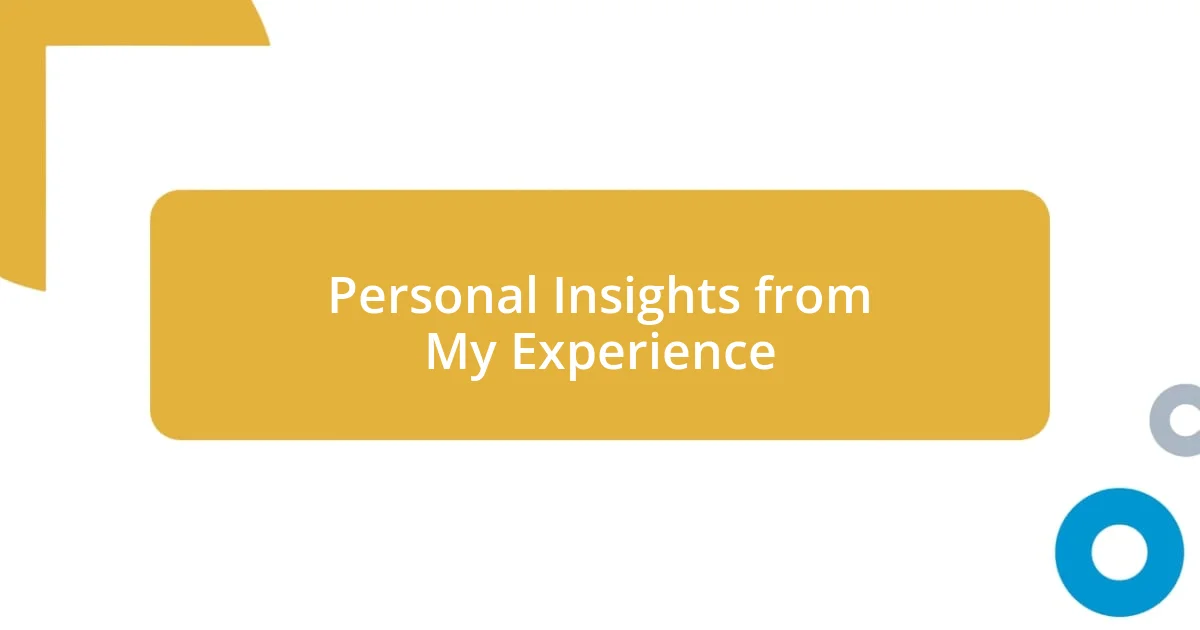
Personal Insights from My Experience
Diving into online history archives has truly expanded my perspective on how we understand the past. I remember sifting through an old newspaper digital archive and discovering a first-hand account from someone who lived through a significant historical event. Reading their words felt like stepping into a time capsule; it made the events feel personal, not just dates in a textbook. Have you ever felt such a connection to history through someone’s lived experience?
There was one time when I found a personal diary from a soldier during World War II. It was poignant, filled with raw emotions and uncertainties. The contrast between the factual history I had read and the intimate thoughts expressed in that diary struck me deeply. This experience highlighted the importance of including personal narratives in historical discussions—how often do we acknowledge the human side of history when we analyze facts? It’s something I now pay much more attention to.
Lastly, I’ve learned to appreciate the collaborative aspect of online archives. I participated in a digital history project where contributors shared their family stories related to a specific event. Hearing different voices and perspectives made me realize history is a tapestry woven from countless individual threads. Isn’t it fascinating how every story adds a new layer to our understanding? This dynamic not only enriches the narratives we create but also fosters a sense of community among those who share a passion for history.




